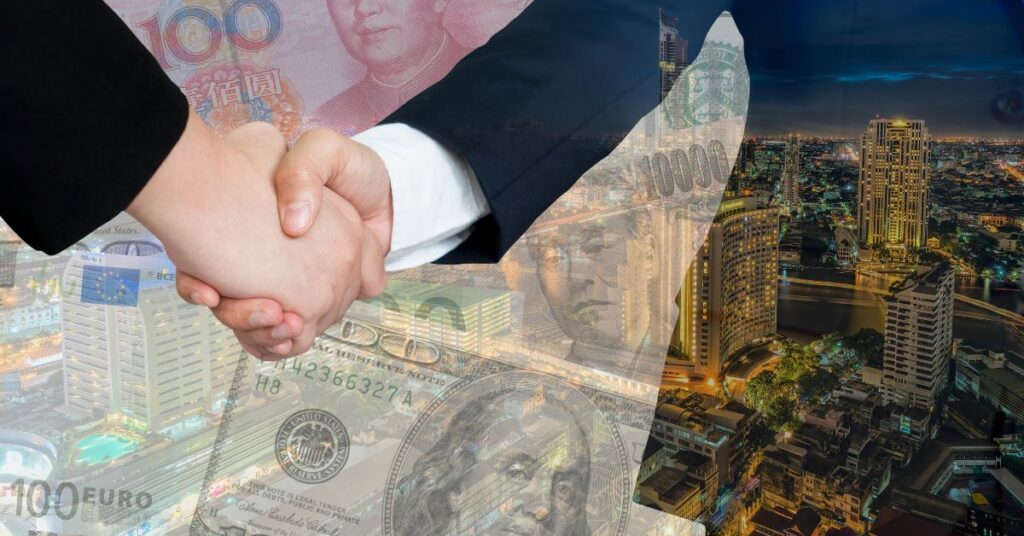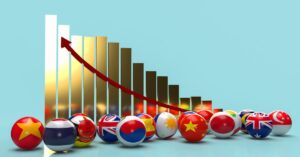The landmark signing of the European Union-Vietnam Free Trade Agreement (EVFTA) in June 2019 signaled a new era of economic cooperation between the EU and the Association of Southeast Asian Nations (ASEAN). With the deal poised to generate considerable impact on both Vietnam and the broader ASEAN region, this paper delves into the opportunities and challenges arising from this development. Drawing on a wealth of academic literature, this analysis highlights the multifaceted nature of ASEAN’s response to the EVFTA and the implications for regional trade dynamics.
Foremost among the opportunities presented by the EVFTA is the potential for increased trade and investment between the EU and ASEAN. The agreement eliminates tariffs on 99% of goods traded between the two parties, thereby fostering a more favorable environment for commerce (Felbermayr et. al., 2020). This development has the potential to create a positive spillover effect for the entire ASEAN bloc, as regional value chains become more integrated with European markets (Bersick, 2019).
Moreover, the EVFTA is expected to catalyze improvements in labor and environmental standards across the ASEAN region. As part of the deal, Vietnam has agreed to adopt and implement numerous international standards pertaining to workers’ rights, environmental protection, and sustainable development (Davies, 2020). By extension, other ASEAN nations may be encouraged to follow suit, in anticipation of future trade agreements with the EU (Mayer, 2021).
However, the EVFTA also presents several challenges for ASEAN. One potential concern is the diversion of European investment from other ASEAN countries to Vietnam, as investors capitalize on the preferential access to both markets (Lopez-Gonzalez, 2020). This reallocation of resources could create imbalances within the region and intensify competition among ASEAN member states.
Another challenge lies in the harmonization of trade policies and regulations among ASEAN countries. The EVFTA may prompt other member states to seek similar agreements with the EU, which could lead to a patchwork of trade rules and standards across the region (Thuzar, 2019). To address this issue, ASEAN may need to pursue a more cohesive approach to trade negotiations and policy development.
In conclusion, the EU-Vietnam Free Trade Agreement presents a complex array of opportunities and challenges for ASEAN. While the deal has the potential to enhance trade relations, labor standards, and environmental protections, it also raises concerns about investment diversion and the harmonization of trade policies. As the region navigates the evolving landscape of international trade, ASEAN’s response to the EVFTA will be instrumental in shaping its future economic trajectory.
References:
Bersick, S. (2019). The EU-Vietnam Free Trade Agreement: Implications for ASEAN Regional Integration. Konrad-Adenauer-Stiftung. https://www.kas.de/en/web/southeastasia/veranstaltungsberichte/detail/-/content/the-eu-vietnam-free-trade-agreement-implications-for-asean-regional-integration
Davies, M. (2020). EU-Vietnam Trade and Investment Deals Explained. European Parliament Think Tank. https://www.europarl.europa.eu/thinktank/en/document/EPRS_BRI(2020)646184
Felbermayr, G., Kimura, F., Okubo, T., Steininger, M., Yalcin, E., & Yotov, Y. (2020). Economic impact of the EU-Vietnam Free Trade Agreement. European Commission. https://op.europa.eu/en/publication-detail/-/publication/45d5bf21-83aa-11eb-af83-01aa75ed71a1
Lopez-Gonzalez, J. (2020). Trade Diversion in Regional Trade Agreements. World Trade Organization. https://www.wto.org/english/res_e/reser_e/ersd2020_e.htm
Mayer, J. (2021). Sustainability Provisions in EU Free Trade Agreements: Assessing Their Potential Impact on ASEAN Member States. Journal of World Trade, 55(1), 123-148.
Thuzar, M. (2019). Regional Economic Integration in ASEAN: Achievements and Current Challenges. Asian Development Bank Institute. https://www.adb.org/publications/regional-economic-integration-asean-achievements-and-challenges











